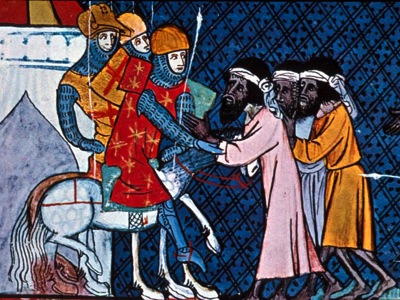Managing Garbage Can Networks: Studies of Crusaders and Turtles
[Refereed Communication] European Group for Organization Studies 21st Colloquium, Berlin, 30 June-2 July 2005, with Sébastien Liarte.
We start with the idea that most networks exhibit characteristics leading to garbage can decision-making. We focus on one feature of garbage can networks, namely the cognitive issue posed by a trade-off: as organizations form networks to lower uncertainty, they increase ambiguity. To study this apparent paradox, we first analyze the First Crusade (1095-1099) and show that it exhibits all characteristic features of garbage can networks. We analyze the military campaign and relate its failures and successes to cognitive and governance issues. Based on this case study, we generate a set of formal hypotheses. We then switch from crusaders to turtles as we turn to simulation. Our computational model allows us to suggest governance mechanisms for network organizations. This paper shows that although the amount of knowledge available in the network increases with exchanges between participants, it is not evenly distributed and does not necessarily benefit the network itself. Uncertainty is thus only partly reduced. Further, their cognitive frames lead some participants to reject part of the knowledge, depending on where it originates from. Ambiguity is thus increased at first, until some common ground is found. Finally, we propose some governance and boundary maintenance mechanisms that might improve knowledge transfer in the network.

Misc. Papers
jeudi 30 juin 2005

